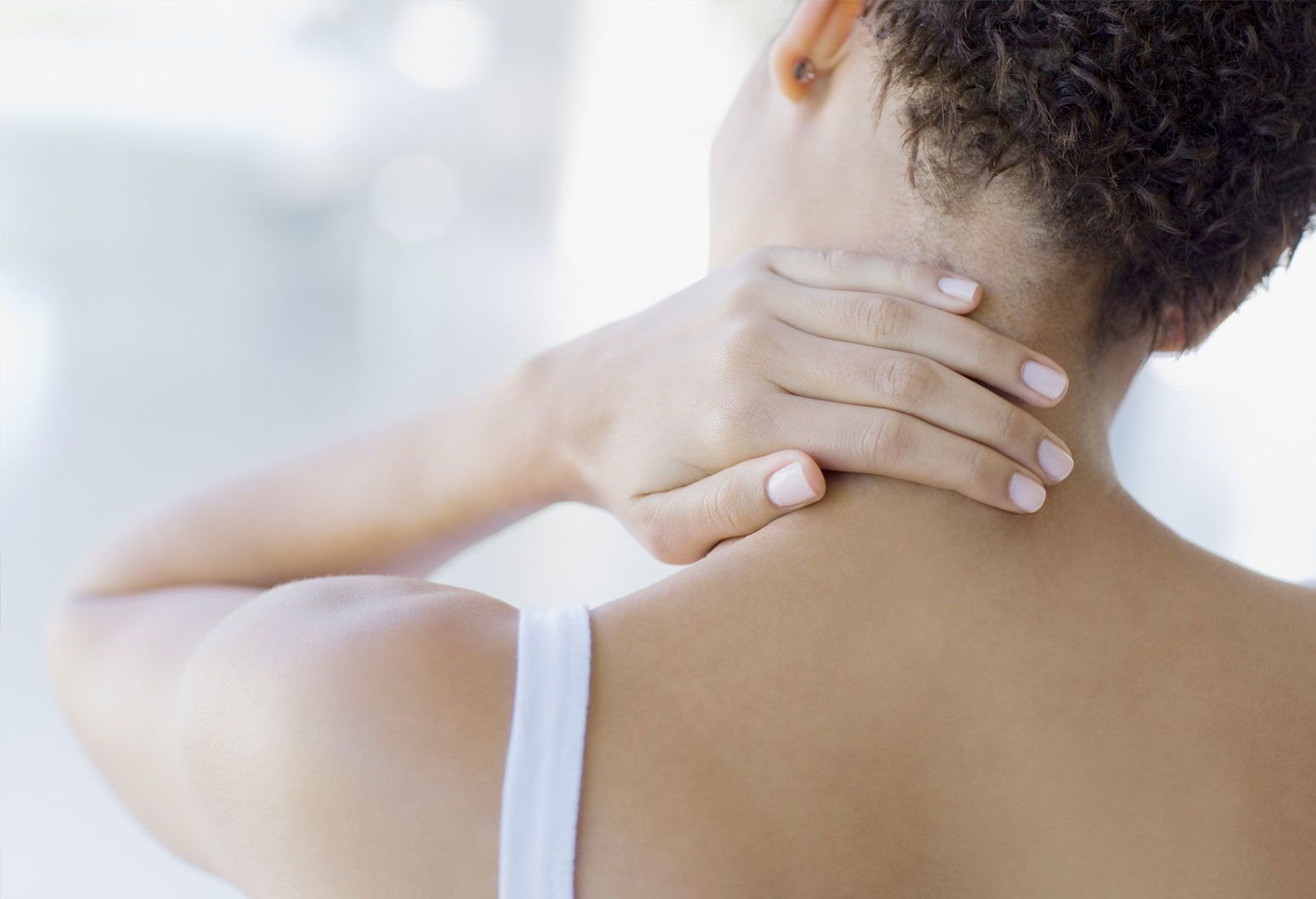Having pain in the neck and shoulder simultaneously is a common condition and is usually the result of a sprain or strain. The pain ranges from mellow to very severe and can include symptoms, such as:

- Tingling
- Soreness
- Shooting pain
- Numbness
- Stiffness
- Spasms
Often, shoulder and neck pain can be a sign of a stroke or a heart attack, and rarely can it result from gallstones or certain cancers. These are severe medical conditions that require immediate help.
Neck and shoulder pain causes
Most shoulder and neck pain is caused by strains and sprains from overexertion, sports, or wrong posture.
Soft tissue injuries
An injury sometimes causes shoulder and neck pain to the soft tissue, including your tendons, muscles, and ligaments. The term soft tissue is used to differentiate it from the hard tissue of cartilage and bones.
Soft tissue injuries can cause many types of pain, which can include:
- stiffness
- headache
- muscle spasms
A pinched nerve (cervical radiculopathy)
A pinched neck nerve can cause pain that travels through your shoulder, known as cervical radiculopathy.
Cervical radiculopathy most commonly comes from changes in your spine due to injury or aging.
Pinching of the nerves can be caused by bone spurs extending through the vertebrae’s hollow space. In case this occurs in your neck, it can result in a pinched nerve.
Symptoms of a pinched nerve include:
- Weakness in the muscles of your shoulder, arm, or hand
- Numbness or tingling in your hand or fingers
Posture and sleeping position
Placing your neck in an odd position for a long time can result in strains in the tendons and muscles of your shoulders and neck.
Some of the activities and postures that commonly trigger shoulder and neck pain are:
- Sleeping on a stack of pillows or a high a pillow
- Clenching or grinding your teeth at night
- Sitting over the phone or at a computer with your neck tilted up or strained forward.
- You are suddenly jerking your neck during exercise.
Frozen shoulder (adhesive capsulitis)
The leading causes of a frozen shoulder are not yet known. When having a frozen shoulder, it becomes excruciating to move your shoulder. Diabetes patients and those between the ages of 40 and 60 are at the highest risk of getting a frozen shoulder.
The main symptom of a frozen shoulder is usually an aching or dull pain located over the outer shoulder and often the upper arm. Frozen shoulders can commonly be relieved by performing stretches or specific exercises for frozen shoulders.
Treating neck and shoulder pain at home
If your shoulder and neck pain is moderate, you can use home remedies to help relieve the pain.
It’s best to see a doctor, though, for more severe symptoms.
Any of the tips below can help prevent or decrease pain at home in the shoulder and neck:
- Stop sports or other activities that could make the area feel worse.
- For the first three days after your pain begins, apply a cold compress to the area. You should wrap the ice pack in a towel and use it five times a day for up to 20 minutes, which can help minimize swelling.
- Apply heat or hot compression to the affected area
- Take the counter pain relievers over there.
- Massage the neck and shoulder area gently.
- Try neck pain stretches and exercises.









